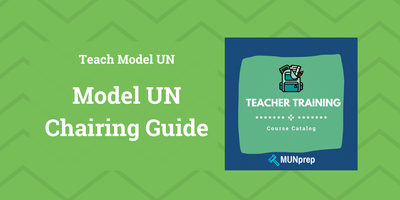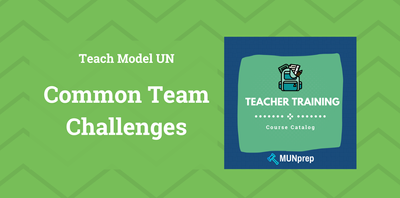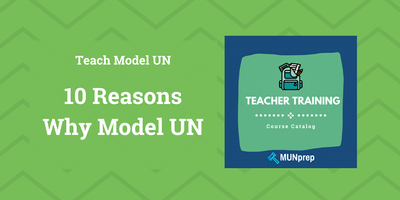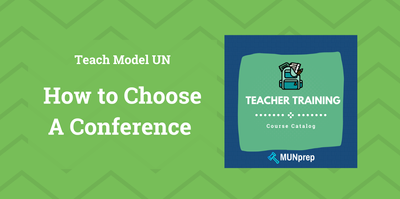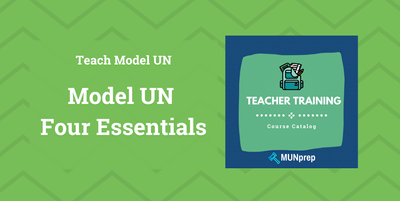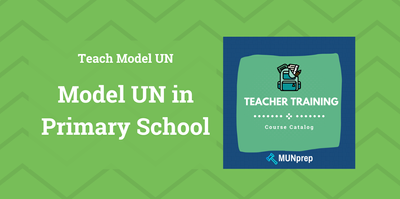The Complete Teacher's Guide to MUN
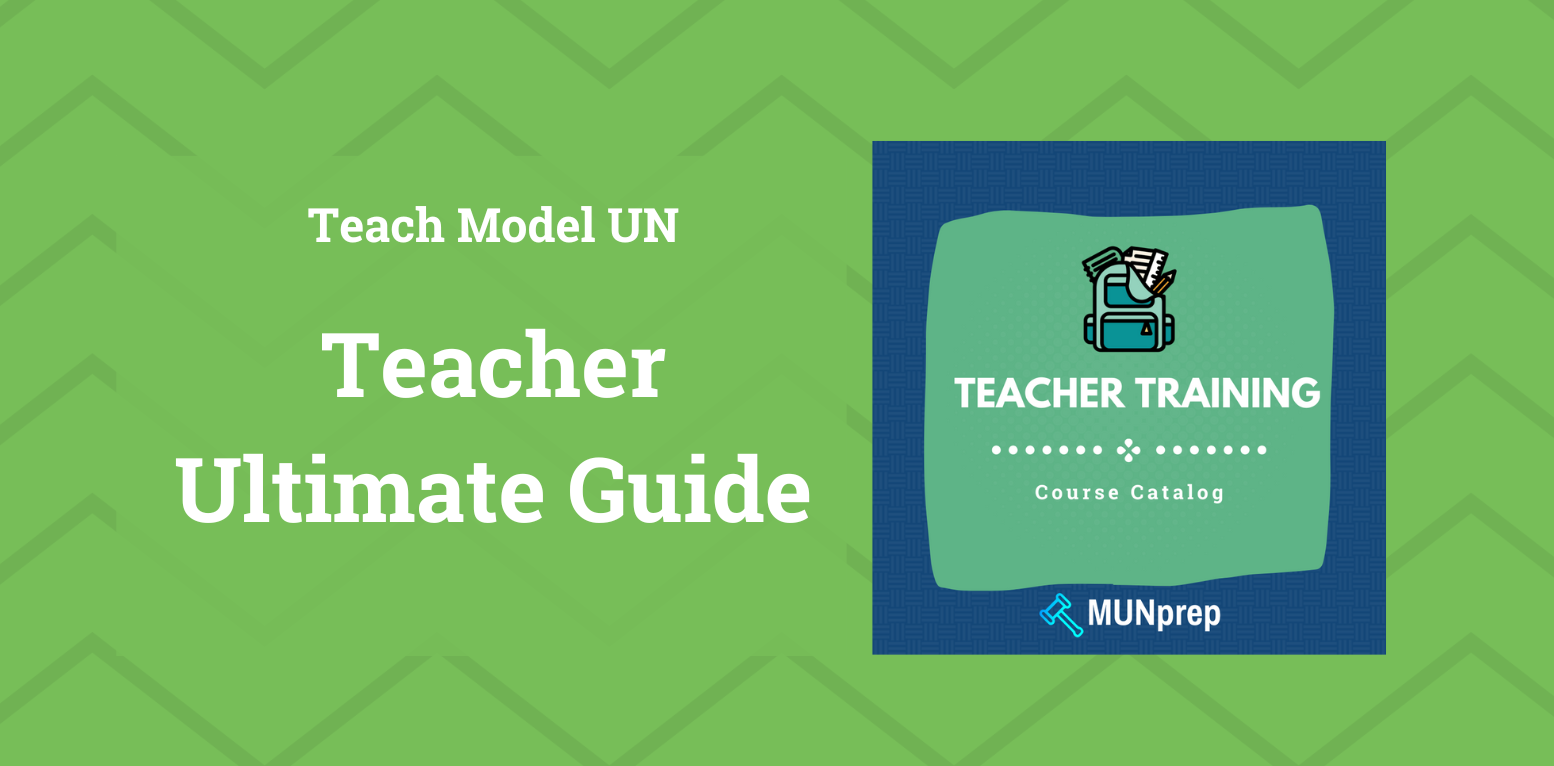
Understanding Model UN: An Educational and Diplomatic Experience
Model United Nations (Model UN) is much more than just a role-playing activity; it's an immersive educational simulation that replicates the processes of diplomacy and global cooperation. In Model UN, students step into the roles of UN delegates to discuss and address real-world issues.
They collaborate with peers from around the globe to develop solutions to pressing global challenges. Through Model UN, students gain an understanding of global policy-making and international relations. They can also develop their critical thinking, public speaking, and negotiation skills, while learning about the United Nations.
Goals of a MUN Program
- Enhance students' understanding of international relations and global issues.
- Develop students' research, writing, and public speaking skills.
- Foster leadership, collaboration, and problem-solving abilities.
- Encourage critical thinking and informed decision-making.
Largest Model UN Conferences
Your team has the change to participate in Model UN all around the world! With conferences taking place nearly every week:
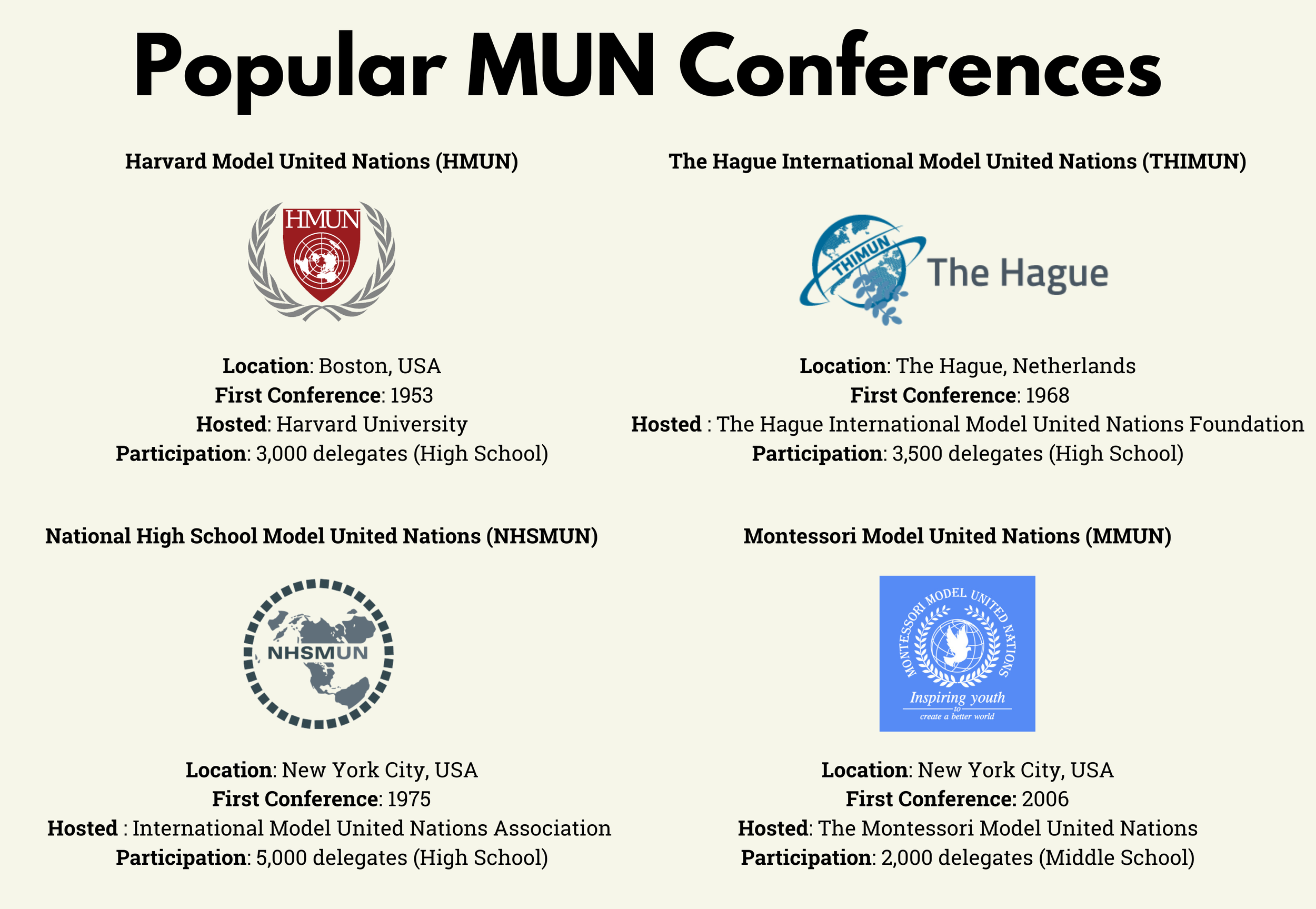
The Goals of Students and Teachers in Model UN
Students
For students, the goal is to represent their delegation to the best of their ability during a Model UN conference. However, becoming an effective delegate goes beyond merely presenting a country’s position. In Model UN, students actively engage in research and policy-making for their assigned country. By the end of the conference, a delegate's ultimate aim is to draft a resolution with a team of delegates and work towards having it passed.
Teachers
On the other hand, teachers step into the role of advisors - helping students to approach the complex world of international relations. Their role is diverse:
- part mentor,
- part facilitator, and
- part strategist.
For teachers, the ultimate goal is to guide students through the Model UN process, ensuring they understand the essentials of diplomacy, research, and policy-making. By the end of the conference, a teacher's success is measured by their students' ability to effectively represent their assigned countries, collaborate with others, and contribute to meaningful resolutions.
Building a Model UN Program
So at this point, if you are thinking about building a MUN program, then there are a few steps that you need to take care of first. This article covers the foundational steps for building a successful MUN program, including establishing a club, planning your first meeting and selecting and training delegates.
Starting Your Club
1 - Secure Administrative Support
Securing administrative support is the first step in starting a Model UN program at your school. Here are a few things you can do before scheduling your meeting:
Prepare a Proposal:
- Educational Benefits: Outline the educational benefits of MUN, such as enhancing students' understanding of international relations, developing critical skills in research, writing, public speaking, and fostering leadership and problem-solving abilities.
- Alignment with School Goals: Demonstrate how MUN aligns with the school's educational goals and curriculum standards.
- Success Stories: Include examples of successful MUN programs at other schools to showcase potential outcomes. Begin by presenting the educational benefits of a MUN program to the school administration.
Pick a Faculty Advisor:
- Find a Passionate Teacher: Identify a teacher or staff member passionate about global issues and willing to guide the club.
- Role and Responsibilities: Clearly outline the role and responsibilities of the faculty advisor, including attending meetings, providing mentorship, and helping with administrative tasks.
- No experience required: For the most part, picking up how best to run a Model UN program will only take a couple weeks! After teams attend their first conference, they generally pick up the rest quite quickly.
Addressing Fundraising Concerns:
Some schools worry that Model UN can be a big commitment. But you should make sure to note that MUN does not always need to be expensive to run at the school level. You can teach your students using free resources to start and participate in online conferences.

2 - Getting the Word Out
With administrative support and a faculty advisor in place, the next step is to attract interested students to join the club. Use a variety of promotional methods to reach potential members, such as creating flyers, making school announcements, and leveraging social media platforms.
During the initial meeting, get people excited about the potential of a new Model UN team at your school! It can be a good idea to have a conference in mind for your new team to participate in before starting the program. Model UN clubs will generally be more likely to stick together if there is a final goal in mind.
Next Steps
Assigning a Faculty Advisor
- Commitment: It is better to start with a teacher who can commit to the MUN program for a few years. There can be a steep learning curve at the beginning, but after running a few simulations, the process becomes much smoother and more efficient.
- Role of the Advisor: The advisor helps teach students the basics of MUN, select conferences and keep the team on target for necessary deadlines.
Structuring Your Program – The Extracurricular Model
The most popular way of running a MUN program is through the extracurricular model, which includes weekly meetings to cover various aspects of MUN. These sessions should focus on:
- MUN Basics: Understanding the structure, rules, and procedures of MUN.
- Simulations: Running practice simulations to apply learned skills.
- Conference Skills: Teaching students how to prepare for a conference including Position Paper and Resolution writing.
Timeline
For first-year programs, allocate at least 6-8 weeks to core training before participating in any conference. This period helps students develop essential MUN skills like research, public speaking, and resolution writing. Alternatively, some schools prefer dedicating the first semester entirely to training, ensuring students gain a thorough understanding and proficiency.
In the second semester, students can apply these skills in conferences, making the transition from training to competition much more manageable.
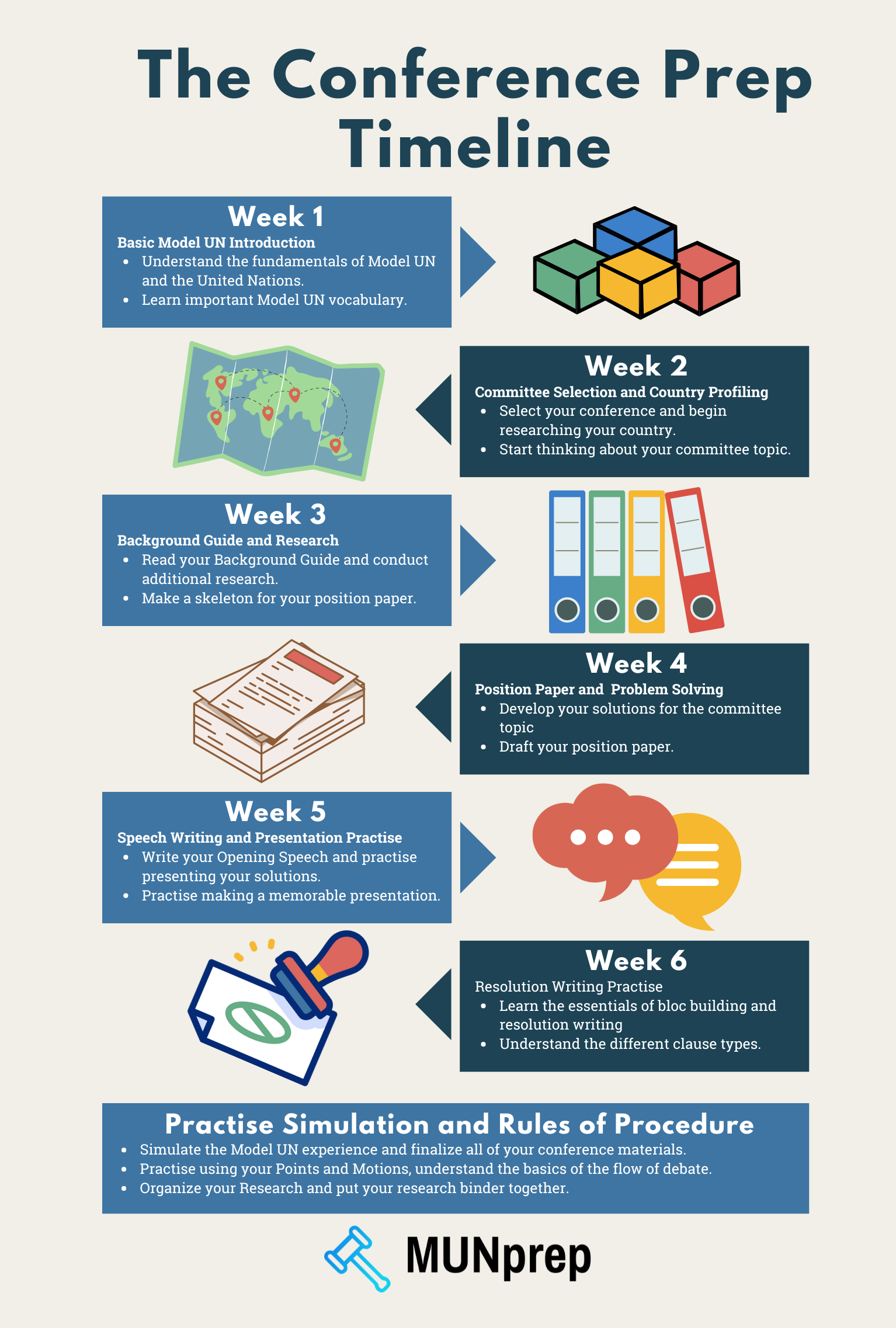
How to Teach Model UN
Teachers have 3 key jobs in helping their students to approach the world of Model UN. Those are:
- Cultivating the Model UN Mindset - Get your students excited to learn about the United Nations and Global Diplomacy.
- Teaching Model UN Procedure - Teach your students how to use proper diplomatic protocols so they can get an authentic Model UN experience.
Cultivating the Model UN Mindset
Here are a few things to help get your students excited about the world of Model UN:
- Creating an Authentic UN Atmosphere in the Classroom - Transform your classroom into a mini-UN by arranging desks in a U-shape to resemble the General Assembly and creating ‘delegation’ zones for different countries. This physical setup is the first step in building the Model UN mindset.
- Engaging Students with the UN's Mission and Work - The heart of the UN's mission is to address global challenges. Start by educating your students on the UN's structure, roles, and responsibilities. Introduce them to how the UN tackles significant issues such as climate change and peacekeeping missions.
- Inspiring Diplomatic Thinking through Simulation - Encourage students to adopt the perspective of diplomats through role-playing exercises. By representing different countries, students learn to navigate complex global issues, understand different viewpoints, and practice the art of negotiation and diplomacy. This practical experience is invaluable in building diplomatic thinking.
- Diverse Perspectives and Discussion Starters - It's crucial for students to appreciate the diversity of global perspectives. Use historical and contemporary events as discussion starters to engage students in debates and diplomatic exchanges. By understanding different national interests and cultural contexts, students can better appreciate the intricacies of international policy-making.
Model UN Procedure
Eventually, your students will need to move from the classroom to an actual Model UN conference. Understanding proper procedure is the most important step to helping them to make that jump. When they learn these procedures, they build the confidence needed to navigate Model UN's intricate landscape.
We have full lessons dedicated to Model UN procedure that you can check out here:
3 Easy Steps of Model UN Procedure
1. Opening Debate - The Speakers List
- Purpose: Each delegate presents their country’s position on the issue at hand. This helps set the stage for understanding different perspectives.
- Process: Delegates deliver formal speeches, usually limited to a few minutes each, outlining their country's stance and proposing initial solutions.
- Primary vs. Secondary Speakers List:
- Primary Speakers List: This is the initial list where delegates are given the floor to present their general position on the topic. It sets the stage for the debate and allows all delegates an opportunity to voice their primary concerns and proposals.
- Secondary Speakers List: This list can be created if there is a need for more focused debate on specific sub-topics or amendments. It helps manage in-depth discussions and ensures that all aspects of the issue are thoroughly explored.
2. Problem Solving - The Caucuses
- Types of Caucuses: There are two main types of caucuses: moderated and unmoderated.
- Moderated Caucus: The chair calls on delegates to speak for short, focused discussions on specific aspects of the issue.
- Unmoderated Caucus: Delegates move around the room freely, engaging in informal discussions to negotiate and collaborate on draft resolutions.
- Purpose: Caucuses allow for detailed negotiation and the development of solutions through direct interaction and compromise.
- Outcome: The aim is to draft working papers and merge them into comprehensive draft resolutions.
3. Consensus - Voting on Resolutions
- Draft Resolutions: After thorough debate and negotiation, draft resolutions are submitted for consideration. These documents outline proposed solutions and actions.
- Debate: Delegates debate the merits of each draft resolution, possibly amending them to gain broader support.
- Voting: Resolutions are put to a vote. Each country casts its vote, and a resolution typically requires a majority to pass.
- Implementation: Once a resolution is adopted, it represents the collective agreement of the committee on how to address the issue.
After Resolutions have passed, the process can start over again for the next topic!
The MUNprep Model to Teaching
The MUNprep Model offers a structured yet dynamic approach to teaching Model UN. This model combines simulation lessons with lecture-style lessons, ensuring that students receive both theoretical knowledge and practical experience. By integrating different teaching methods, the MUNprep Model keeps students engaged and facilitates comprehensive learning.
Mixing Up Simulations and Lectures
A balanced mix of simulations and lectures is essential to maintain student engagement and foster a deep understanding of Model UN procedures and skills.
Simulation Lessons
Simulation lessons are important for developing your students practical skills and confidence. They provide a realistic environment where students can apply what they’ve learned in a controlled setting. Repetition in a simulation environment can also help students overcome the imposter syndrome that they may experience when faced with solving big global issues. The goal is to encourage your students to not feel pressured to think that there is only one correct approach to MUN - in fact nearly any solution can work if students go about it the right way!
Lecture-Style Lessons
Make sure to keep your lecture-style lessons interactive and dynamic, we recommend moving between 3 parts in your classes.
- Warm-Up Activity:
- Purpose: To get students thinking about the topic and to activate prior knowledge.
- Duration: 5-10 minutes
- 20-30 Minute Lecture:
- Purpose: PowerPoint Presentation to teach the class about one of the core components of Model UN.
- Content:
- Foundational Knowledge: Understanding the UN structure, rules of procedure.
- Skills Development: Public speaking, negotiation, resolution writing, research techniques etc.
- 20-30 Minute Practice Activity:
- Purpose: To apply the material learned in the lecture in a practical, hands-on way.
- Activities:
- Simulated Debates: Students practice debating a given topic.
- Research and Writing: Exercises that build confidence in the conference prep process in a gradual manner.
Our Free curriculum can help you structure your lessons, but if you’re looking for an all-in-one solution, try out the Teambuilder program today!
Final Thoughts on Building a MUN program
Hopefully this guide has given you the confidence you need to get started in the world of Model UN!
Best of luck from the MUNprep team!

